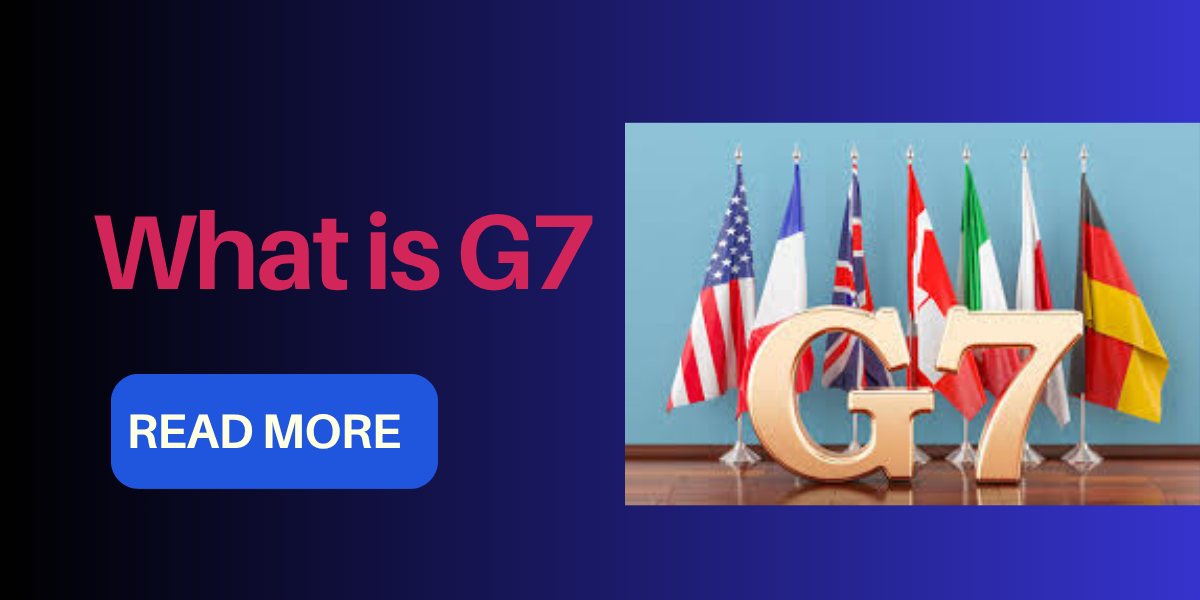The G7 (Group of Seven) is an intergovernmental organization consisting of some of the world’s most advanced and influential economies. It serves as a forum for leaders to discuss and coordinate economic policy, international security, and other major global issues.
🌍 Members of the G7
As of now, the G7 includes the following countries:
- Canada
- France
- Germany
- Italy
- Japan
- United Kingdom
- United States
Additionally, the European Union (EU) is represented at G7 meetings but is not counted as a member state. What is G7
🧭 Key Significance of the G7
- Economic Powerhouse
Together, the G7 countries represent:- About 40-45% of global GDP.
- Some of the most technologically advanced and industrialized nations.
- Leaders in global finance, trade, and innovation.
- Global Policymaking Role
The G7:- Coordinates on major global economic issues (e.g., inflation, debt crises).
- Addresses international security threats (e.g., terrorism, conflicts).
- Leads responses to global challenges like climate change, pandemics, and development aid.
- Political Influence
- Though informal and without a permanent secretariat, G7 decisions often shape the agendas of larger global organizations like the G20, UN, IMF, and World Bank.
- Crisis Response
- The G7 has played roles in responding to crises, including:
- Financial crises (e.g., 2008 global financial meltdown).
- Geopolitical events (e.g., Russian invasion of Ukraine).
- Global health emergencies (e.g., COVID-19 pandemic).
- The G7 has played roles in responding to crises, including:
🧱 Background & History
- Founded in 1975, originally as the G6 (without Canada).
- Russia joined in 1998, making it the G8, but was suspended in 2014 after annexing Crimea. Since then, it reverted to the G7.
-
Major Global Summits for competitive exam in india
Global Summits MCQ Quiz Global Summits Quiz – 50 MCQs Submit Answers Post Views: 38
-
General Knowledge for Students
Test your GK knowledge Quizzes Science & Technology Quiz 1. What does CPU stand for? Central Processing…
-
Learn Maths for Class 6 to 8 for Competitive exam
📘 Mastering Mathematics from Class 6 to 8: A Smart Guide for School and Competitive Success Mathematics…
-
UPSC Civil Services Examination (CSE) syllabus for 2025, ideal for new aspirants
UPSC CSE 2025 – Exam Structure The exam is conducted in three stages: UPSC Civil Services Examination…
-
What is Digital Literacy and its Important
Digital Literacy and Its Importance Today Digital literacy in India refers to the ability to effectively use…
-
Learn Local Self Governments for Competitive exam
Local Government MCQ Quiz Local Government – 50 MCQ Quiz Submit Quiz Summary Before Lord Ripon’s reforms,…
-
FCI Grade III General Phase I Mock Test
FCI Grade 3 — General English Phase 1: Mock Test FCI Grade 3 — General English (Phase…








